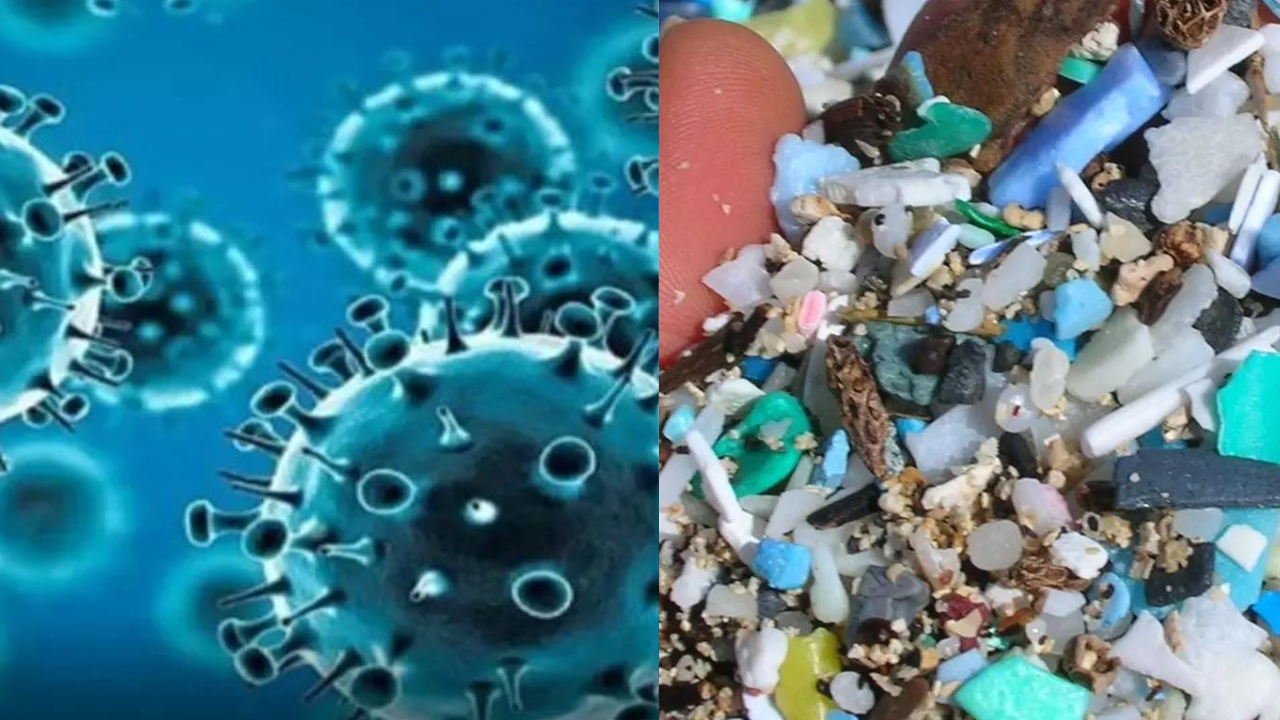PANAJI: The concentration of microplastics in surface water and sediments in Mandovi and Zuari estuariesin Goa declined significantly during the Covid-19 pandemic, which highlights the potential benefits of sustainable consumption and production patterns, a research paper has said. Microplastics are extremely small pieces of plastic debris in the environment resulting from the disposal and breakdown of consumer products and industrial waste, and are harmful to ocean and aquatic life.
A team of researchers from CSIR-National Institute of Oceanography in the paper titled “The consequences of reduced anthropogenic activities during the Covid-19 pandemic on microplastic abundance in a tropical estuarine region: Goa, India” said a sharp decrease in the microplastics (MPs) concentration was observed following the Covid-19 outbreak in 2020.
The researchers – Priyansha Gupta, Mahua Saha, V Suneel, Chayanika Rathore, Durbar Ray and Akshata Naik – conducted this research by collecting samples from this area before and after the pandemic.
“This study showed a comparison in the distribution and characterisation of MPs from surface water and sediments of the Mandovi, Zuari estuaries before the isolated pandemic (BIP 2019) and after the isolated pandemic (AIP 2021) periods,” the paper said.
“During the AIP period, the MP concentrations/levels were much lower than in the before-isolated pandemic (BIP) period for both surface water and sediments irrespective of the different seasons,” it said.
The researchers concluded that the concentration of MPs declined by two to seven times after the Covid-19 lockdown.
“A reduction in MP levels during BIP to the AIP period may indicate a positive impact on the health of marine ecosystems and progressive implications for the economic and social well-being of coastal communities,” the paper reads.
The study revealed that the reduced MP levels is associated with changes in human activities during the pandemic and thus it may highlight the potential benefits of more sustainable consumption and production patterns.
“This underscores the pivotal role played by societal and industrial exploitations in driving MP pollution and by effectively controlling and altering human actions on plastic production, consumption, and waste management, the emerging MP concentration in water, can be controlled to a great extent,” the researchers have said.
The paper has mentioned that this will eventually be helpful for the identification and amelioration of potential MP sources, encompassing both regional and global contexts.
A team of researchers from CSIR-National Institute of Oceanography in the paper titled “The consequences of reduced anthropogenic activities during the Covid-19 pandemic on microplastic abundance in a tropical estuarine region: Goa, India” said a sharp decrease in the microplastics (MPs) concentration was observed following the Covid-19 outbreak in 2020.
The researchers – Priyansha Gupta, Mahua Saha, V Suneel, Chayanika Rathore, Durbar Ray and Akshata Naik – conducted this research by collecting samples from this area before and after the pandemic.
“This study showed a comparison in the distribution and characterisation of MPs from surface water and sediments of the Mandovi, Zuari estuaries before the isolated pandemic (BIP 2019) and after the isolated pandemic (AIP 2021) periods,” the paper said.
“During the AIP period, the MP concentrations/levels were much lower than in the before-isolated pandemic (BIP) period for both surface water and sediments irrespective of the different seasons,” it said.
The researchers concluded that the concentration of MPs declined by two to seven times after the Covid-19 lockdown.
“A reduction in MP levels during BIP to the AIP period may indicate a positive impact on the health of marine ecosystems and progressive implications for the economic and social well-being of coastal communities,” the paper reads.
The study revealed that the reduced MP levels is associated with changes in human activities during the pandemic and thus it may highlight the potential benefits of more sustainable consumption and production patterns.
“This underscores the pivotal role played by societal and industrial exploitations in driving MP pollution and by effectively controlling and altering human actions on plastic production, consumption, and waste management, the emerging MP concentration in water, can be controlled to a great extent,” the researchers have said.
The paper has mentioned that this will eventually be helpful for the identification and amelioration of potential MP sources, encompassing both regional and global contexts.
Denial of responsibility! Swift Telecast is an automatic aggregator of the all world’s media. In each content, the hyperlink to the primary source is specified. All trademarks belong to their rightful owners, all materials to their authors. If you are the owner of the content and do not want us to publish your materials, please contact us by email – swifttelecast.com. The content will be deleted within 24 hours.


